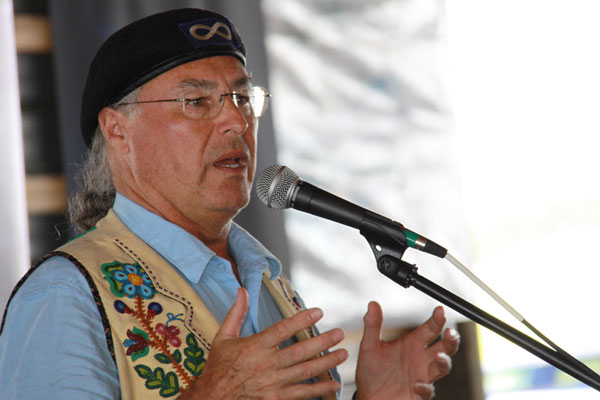Métis Nation reacts to SCC ruling
- EFN Staff | April 15, 2016
In a landmark ruling, the Supreme Court of Canada (SCC) recognized and affirmed that the federal government's duties and responsibilities apply to all three of Canada's Indigenous Peoples including the Métis.
In reaching its decision, Justice Abella speaking for a unanimous court stated: "The history of Canada's relationship with its Indigenous peoples, inequities are increasingly revealed and remedies urgently sought…This case represents another chapter in the pursuit of reconciliation and redress in that relationship." The judgment clearly "recognized that Métis and non-status Indians have no one to hold accountable for the inadequate status quo". The court concluded that Canada has a constitutional and jurisdictional responsibility for Métis under s. 91(24) of the Constitution Act, 1867.
Without dictating what the Government has to do, this historic decision nonetheless places a clear obligation upon the federal government to negotiate with the elected government of the Métis Nation. The court ruled against the Crown that the ruling would have no practical utility noting that "Delineating and assigning constitutional authority between the federal and provincial governments will have enormous practical utility for these two groups who have, until now, found themselves having to rely more on noblesse oblige than on what is obliged by the Constitution". The court reaffirmed the federal government's duty by identifying a trilogy of cases that "already recognize a context-specific duty to negotiate when Aboriginal rights are engaged".
"This decision ends the federal government's long standing discrimination and non-recognition of the Métis people and the elected body that represents the Métis Nation – the Métis National Council," stated President Clément Chartier of the Métis National Council (MNC). While the finding does not mean the federal government must legislate for Métis, the court went on to say that "it has the undeniable salutatory benefit of ending the jurisdictional tug-of-war in which these groups were left wondering about where to turn for policy redress".
"It is clear in the decision the SCC recognizes both levels of government have responsibilities to deal with the Métis Nation. This decision also proves the federal government is constitutionally vested with an overriding constitutional obligation vis-a-vis the Métis Nation."
In determining that Métis were included in 91 (24) the court recognized the crucial role the Métis Nation played in opening up western and northern Canada, the court stated: "It would have been impossible for Canada to accomplish its expansionist agenda if "Indians" under 91 (24) did not include Métis. The threat they posed to Canada's expansion was real. On many occasions Métis "blocked surveyors from doing their work" and "prevented Canada's expansion in the region" when they were unhappy with the Canadian Government".
The main message this decision gives the federal government is it can no longer point to the provinces to address the deep seated social and economic issues of the Métis Nation. The federal government must now step up to the plate and negotiate in good faith with the Métis Nation and its elected, representative body – the Métis National Council.
"Make no mistake," said President Chartier, "this decision confirms what the Métis Nation has been saying for decades – Canada has a constitutional and jurisdictional responsibility to the Métis Nation. My Board of Governors and I are prepared to continue on this path of reconciliation with Canada towards a mutually respectful nation-to-nation relationship."
In his closing remarks President Chartier noted "As the Court stated, 'This case represents another chapter in the pursuit of reconciliation and redress in that relationship'. We now await to hear from the Minster and her Special Ministerial Representative (Tom Issac) on the path forward for the Métis Nation."

